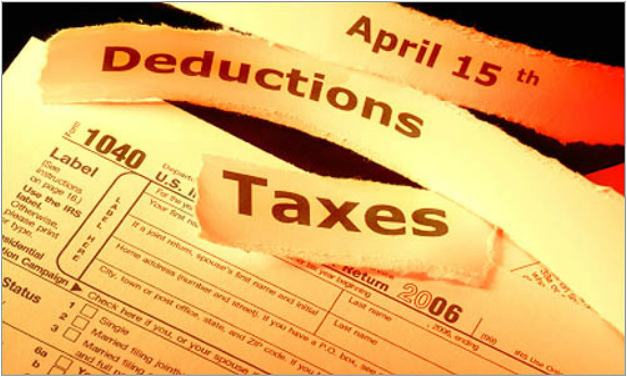Tax Resolution Help: Getting Tax Resolution Help to Stop IRS Levy issues can be tricky. Finding the right Resolution Help is hard when so much is available. But the right Resolution help will ensure the ability to Stop IRS Issues and maybe even qualify for an IRS Compromise to lower the amount owed.
How to Get Quality Tax Resolution Help
You can get Help from a tax professional like an accountant, or a tax-resolution firm. Each of these sources for a Resolution have different pros and cons, and all of them can be helpful if you want to get an IRS Compromise or Stop IRS Levy problems.
Resolution Help from an Accountant: An Accountant can help you with your finances, particularly when it comes to filing IRS Taxes. If you own a business or have complex finances, it’s a good idea to work with an Accountant. But if you need Resolution Help, a Tax Accountant would be less experienced if you need to Stop IRS Levy issues or win an IRS Compromise. Most Accountants simply don’t negotiate with the IRS on a day-to-day basis.
Resolution Help from a Licensed Enrolled Agent: An IRS Licensed Enrolled Agent is an accountant or financial professional that is licensed to directly negotiate with the IRS. They go through rigorous testing to earn this honor, and they work hard to provide quality Tax-Resolution Help. A Licensed Enrolled Agent is a good resource, but does not have the same experience and education that a Tax Attorney has to provide Tax-Resolution Help or Stop IRS Levy issues.
Resolution Help from a Tax Resolution Firm: If you need Tax-Resolution Help, a Tax-Resolution Firm is the absolute best option. A Tax Resolution firm employs Tax Attorneys, Licensed Enrolled Agents, Tax Accountants, and other tax experts to ensure you get the best service. No stone is left unturned when you work with a qualified firm for Tax-Resolution Help.
Choosing the Right Tax Resolution Help
Once you decide the type of Tax Resolution Help you’ll use to earn a Tax Compromise or Stop IRS Levy issues, you need to decide on the right Tax Resolution Help professional to work with. You have to make sure that Tax Resolution Firm, Tax Attorney, or Tax Accountant is a reliable professional that won’t rip you off. Make sure you do your research:
– Make sure whoever you choose has an A Rating or higher with the Better Business Bureau (BBB.org).
– Never be afraid to ask questions to be sure you’re working with knowledgeable and reliable professionals.
– The IRS warns taxpayers to stay away from companies that claim you can settle Tax Debt for “Pennies on the Dollar”. This is false advertising, as few people qualify for an IRS Settlement.
What You Need To Know About Tax Write-offs For Casualty Losses
Life is full of ups and downs, and there is no way of predicting when you will suddenly find yourself in a bad situation. However, there is at least one up side to disaster; most can be counted as casualty losses or deductions on your taxes. While you won’t get all the money back you lost, for major losses, it is worth claiming the deduction.
Money doesn’t replace everything that has been lost in a disaster, but it can help you rebuild. There are certain requirements defined by the IRS that must be met for your loss to be claimed as a deduction. The IRS considers a casualty loss to be “the damage, destruction or loss of property resulting from a sudden, unexpected or unusual event.” Losses are not limited to those caused by natural disasters, there are also certain circumstances such as robbery or theft that are considered casualty losses. Other examples of what the IRS considers a claimable casualty loss are: floods, hurricanes, tornadoes, fires, earthquakes, ice storms, blizzards, vandalism, drought, and mudslides. Natural causes for loss are not considered claimable. Such things as lost property, termite damage or damage caused by neglect will not be accepted.
For certain situations the casualty loss deduction is given without following all of the rules. For example if someone experienced loss in a Presidential declared disaster area, the victims can claim losses in the same year as the disaster. For all other people the deduction must be claimed the following year.
Pay Off Back Taxes on Your Terms
If you owe back taxes, it can be daunting and sometimes impossible to pay the whole amount at once. However, you can set up a payment plan that will let you pay off your debt in installments so you don’t have to shoulder the whole burden at one time.
Many people find themselves in a position in which they owe taxes from previous years. When the IRS informs you of this debt, it can be extremely difficult to come up with the entire amount all at once. This is why paying back your tax debt in smaller amounts through an installment agreement is such an important option to have. Installment agreements need to be carefully constructed and monitored, however, so that you do not risk paying more interest than you need to. A tax professional can help you find the right payment plan that will minimize the interest you pay while still helping you to shrink your debt.
Finding that you owe the IRS back taxes is an extremely difficult situation for anyone. But, even if you don’t have the money to pay off the whole amount right away, you still have options. The IRS knows that not everyone can settle their entire back tax debt all at once, so they’re open to negotiating installment agreements as a form of back taxes help. This means that you pay off your debt to the IRS in smaller amounts over a longer length of time. This is a great option since it means that you can address your debt without putting your other financial obligations in jeopardy or tying up all the money you need for day-to-day expenses. The main downside to be aware of, though, is that the IRS will continue to charge interest on whatever outstanding balance you still owe on your tax debt. So, the longer you take to pay it off, the more money you will have to pay the IRS in the long run.
In order to minimize the amount of interest you will pay, it’s important to choose and set up the right installment agreement with the authorities–one that takes into account your current financial health, the amount of your debt, and the interest you will be charged over the lifetime of your payment plan. Unless you are very good with figures and with tax regulations, this is a step best left to a tax professional in your area. They will be able to weigh all the information and to create the installment agreement that best benefits you today and in the long run. They will also take on the task of liaising with the IRS on your behalf and setting up your installment agreement in an official capacity. With the help of your tax professional, you will be able to settle your debt more quickly and with minimal additional cost to you.
Owing back taxes can feel like a nightmare, especially if you think you have to pay everything back all at once. However, by working with a tax professional to create a payment plan that suits your current reality, paying down your IRS debt is possible.
If you owe back property taxes or back income taxes and you don’t have the money on hand to pay the whole amount immediately, setting up an installment agreement with the IRS is an excellent solution that will let you pay down the debt without losing all the money or resources you need for other parts of your life.
Tax Professional: Friends of Filers
During tax “season” you’ll see plenty of commercials on television for a tax professional. Though they make claims to remove the stress of your tax situation, you still might wonder if they’re legitimate, and if their claims in the ads are for real.
If you know that you really need a professional who knows how to deal with your specific situation and need help and advice on your tax issues, hire one. A lot of people try and get back on track on their own, without even fully understanding their own taxes or the system. This is when hiring a professional would be a smart idea.
They are often ex-IRS tax professionals or other qualified tax professionals who know everything about filing taxes and all of the options for catching up with back taxes. They know better than anyone, except the Internal Revenue Service, on how to correctly file with itemized deductions or even include any deductions you might have missed. They can also help you get your back owed debt back on schedule to not compromise your financial future.
Dealing with the IRS can be a tough job, and your sanity and reputation hang in the balance. Most taxpayers probably do not know all the rules and formulas that are applicable in each situation. While many cases involve simple issues that can be easily resolved, many escalate into stressful and overwhelming financial nightmares. Your tax professional will understand how to approach the IRS and communicate with them for you.
A tax professional is most often hired by individuals or businesses with tax problems such as audits, back taxes, bank levies, wage garnishments, and even property liens and seizures. Once you have a knowledgeable tax professional in your corner, the IRS will seem less threatening and a lot easier to work with. In many cases, they can also put a halt to wage garnishments or property liens and they might also get the IRS to forgive and eliminate any penalties and interest tacked onto the taxes. So even if you just owe back taxes and can’t afford to pay the bill in full, your new friend, the tax professional, will be able to work out a payment plan with the IRS. Just remember to stick with it to avoid further issues.
Save Yourself From Tax Related Headaches
Taxes are not everyone’s cup of tea but nonetheless for any long standing business or start up business, filing your tax returns is very important. Can you handle your taxes on your own? Many people don’t realize the importance of paying taxes on time, before they get a hefty penalty.
Hiring a professional tax analyst i.e. a CPA can save a lot of trouble for most people long term. Also dealing with the IRS can seem a little overwhelming to many, especially if you are not aware of the procedures of filing tax returns.
Professional tax service firms offer their expertise in many areas related to tax. The firm takes over the interaction with the agency on your behalf like the IRS and State. Hiring a professional can bring light to your tax situations and what loopholes you can use in the future. Also, to begin with you ask for a consultation of your financial and tax matters before you sign over the power of attorney to the firm. Also, discussing your financial situation can accommodate strategies that help you pay your taxes on time. Also, the benefits of hiring a professional also include getting a meeting with the IRS and opening up the option to settle the payment in terms suitable to you.
The choice to get help is up to you. If you can handle the meeting with IRS on your own, you do not need a tax attorney. If not, try and get a reputable firm with experience to look into your tax problems on your behalf and you will get that burden off your shoulders at the same time.
Tax Resolution – It Can Change Your Life
Outstanding tax debt is becoming increasingly challenging for the population. Federal tax liens and levies filed by the IRS has grown significantly over the years leading to the IRS having to be tenacious in collecting outstanding tax debt. This can lead to an overwhelming stress being placed on households, sometimes with disastrous outcomes. Often people avoid dealing with tax issues simply because they find the problem overpowering. There is a solution, professional tax companies are an endless well of knowledge and assistance that can be used when dealing with the IRS. Here is why you should consider consulting with them.
One of the greatest benefits of using a tax agency is that you will not have to face the IRS unprepared or on your own. When you have an attorney, CPA, or tax specialist working on your case you have a bounty of knowledge which they can put to work for you to ensure that you receive the best possible settlement or solution to your tax problem.
The penalties and interest are automatically added to your total IRS amount owed however you may not be required to pay these fees. If you work through a tax relief firm they may assist with having your situation evaluated and request for penalties to be removed based on your circumstances, this can reduce your balance owed and alleviate some pressure.
The last thing you want is for your assets to be seized by the IRS. This has been the result in some cases, although it is usually a last resort for the IRS. An experience firm can assist you in avoiding this outcome.
The worst thing next to having seizure of your assets is having the IRS dip into your bank account to recover past due taxes. This will take place after you have received numerous written notices and warnings however you will still be left astounded by this unplanned levy if it should occur. In 2011 over $55 billion dollars was collected following enforcement actions, leaving people without living expenses. This is just another outcome a tax relief firm can help you avoid however you should enlist their services as soon as you receive the first notice from the IRS, delays in action could mean that the consequences are unavoidable.
The IRS also has jurisdiction to require your employer to comply with recovering past due taxed by placing a garnishing order on your wages. Between 30 – 75% of your NET income may be garnished from you and this hold will remain in place with your employer until the IRS issues a release, which may be until the entire amount has been recovered. A tax relief firm may negotiate on your behalf to have the amount reduced to an affordable rate or stopped completely.
Aside from negotiating down garnishing, an efficient firm may also work in accord with the IRS to lower your total amount owed as well as to make the payment terms simpler and over a shorter period of time, thereby resolving your tax debt swiftly.
Dealing with the IRS is a daunting task and there is no resolution in hiding from the problem. The only way to gain true peace of mind from the situation is to tackle the problem. The complex policies and procedures along with legislation can make it difficult to unravel your tax dilemma however working with a qualified and experienced tax relief agency can relieve a great deal of the anxiety and pressure.
Tax Resolution – Dealing with Penalties and Interest
When dealing with your tax most likely your primary concern is how much of a hole you will find yourself in financially. Clients commonly avoid dealing with their tax debt simply out of fear that the number of zero’s on the bill will bury them alive. While this is a valid concern it is advisable to approach the matter prudently and this means taking the first step of obtaining a formal resolution of your tax debt. Seeking abatement from penalties and interest as the first order of business without giving authorities the opportunity to establish reasonable cause will sabotage your efforts.
The most common reasons for penalties being applied are related to failure to file, failure to pay, federal tax deposit penalty, estimated tax penalty and the Trust Fund Recovery Penalty (TFRP). In the event that the IRS establishes reasonable cause they will consider removing penalties. Evidence needs to prove that the taxpayer had every intent to act in good faith however non-compliance was not due to wilful neglect. The taxpayer will be required to show an absence of direct knowledge leading to tax accrual. When faced with this situation clients are advised to remain factual, and focus on the timelines that overlap with the accrual.
Outsourcing Your Tax Headache – What You Need to Know
The role of tax relief companies serves to assist taxpayers who struggle to or cannot pay their taxes. Working with one of these companies can save clients substantial amounts of money and give them the knowledge and confidence to solve their tax problems.
Each firm will utilize varying strategies but in the end they aim to reduce the financial strain experienced by the taxpayer. They are able to assist with reducing the level of tax debt, terminating garnishing of wages, guiding you through an audit and concluding a tax relief agreement with the IRS.
It is important to be aware that every tax resolution firm is different and that there are some unethical firms out there which means that it is essential to be cautious, ask the right questions, and do your research to assist you with choosing the right firm to represent your interests with the IRS.
One way to determine the authenticity of the firm is to look for one that is in good standing with the Better Business Bureau. Also look into the track record of the agency and investigate how long they have been in practice. A solid, traceable track record points to an established community presence.
You may be required to pay a retainer upon agreement that you will work with the firm and this should prompt you to request a written fee schedule and payment policy. It is also wise to ask for a summary of the fees you will be expected to pay, all billing should be clearly outlined and allocated. Try to avoid companies that charge an unusually low flat rate, legitimate firms base their fees on the complexity of your case and will charge you according to the amount of work required. And if you case changes or becomes more complex, your fee may increase.
Do not be tempted to fall for a promise of a specific outcome on your case, tax resolution firms can not determine how the IRS will rule and the IRS has the final say on your case. Keep in mind that a legitimate firm will first assess your case in order to establish whether they are able to be of assistance, so keep clear of any firms that offer to take on your case without knowing the facts.
It is also important to make sure that you do your research thoroughly. Use the tools you have at your disposal to ensure that the firm, staff and owners are in good standing within the industry. LinkedIn and Google can prove to be valuable resources. A lawful firm will also have staff who are professional, accessible and will provide an honest assessment of your circumstances and will be clear in terms of your eligibility for an IRS-based tax debt relief program.
Finding a reputable tax resolution firm requires some effort and research however having a team of experts available to assist you with your tax solutions, manage your correspondence with the IRS and possibly negotiate down your interest and penalties on your behalf is well worth the effort.
How to Prevent and Remove IRS Tax Liens?
Not paying your back taxes can cause you serious problems. The IRS Tax Lien is one of them and should be avoided at all cost. But first, what is a tax lien?
To make it very simple, a lien is an involuntary charge to someone’s asset to serve as collateral. This is to ensure that tax debts will be paid. If not, the IRS has the right to claim the asset and sell it to pay for your taxes. This is usually done only as a last resort. IRS will exert all efforts to collect taxes before opting to use a tax lien since it is a tedious process and can hurt you real bad. For example, it can leave an almost permanent mark on your credit history.
Tax liens can be placed by either the Federal, state, or local government depending on the severity of the situation. You should also know that Tax liens are public record and assets controlled by a lien cannot be sold or borrowed or refinanced. If your tax debt is still left unpaid after a lien is issued, then the government will seize your assets to pay for the debt in part or in full.
How Can I Avoid Tax Liens?
The most obvious way to prevent IRS from issuing a tax lien is to pay for your taxes regularly. File and pay your taxes promptly and correctly to avoid any problems. If in any case you face a situation wherein you’re having a hard time paying for your tax, you can talk to the IRS to get into an installment agreement. If you do this, IRS will know why you’re not being able to pay and getting an agreement will assure them that you’re going to pay your debt.
What Can I Do To Remove Tax Liens
When tax liens are already placed on your property, the government has already reserved the right to seize that if you do not pay over an extended period of time. But there are ways on how to remove a tax lien on your property before it reaches the point where IRS will issue a bank levy.
Filed in Error – if the lien is a result of an error or miscalculations, the lien will be withdrawn automatically. This happens when there are mistakes on documentation and calculations on tax debt or returns but this does not usually happen.
Pay Your Debt – If you missed the chance to pay your debt before getting a lien on your property, then you can do it as early as possible. This is the only way out. Now if paying your taxes in full is going to cause you other problems, try to give an offer in compromise. This, however, is not an easy path. You need professional help to make sure you can give the IRS an offer they cannot refuse but would still be beneficial for you.
Wait For a Decade – IRS has 10 years to collect outstanding tax liabilities. This is measured from the day a tax liability has been finalized. A lot of tax payers intentionally use this time limit to avoid paying for their debt. IRS usually offers installment agreements before this limit ends but they will ask you to sign a document waiving the ten years limit. And extend it up to 6 more years. Talk to a professional to analyze the best tactics to intentionally wait for the limit without getting into trouble.
It’s not easy to have IRS on your tail bugging you to pay your tax. Because they will do all that they legally can to get that. To help you avoid digging deeper holes, ask for help from a tax resolution expert and let them handle your tax problems.
When The IRS Comes Calling
Having to come face-to-face with any tax authority, be it the IRS or at the state level, can be very intimidating for most average taxpayers. And taxpayers who try to deal with tax authorities on their own may find themselves completely immersed in legal speak which they do not understand, and agreeing to things contrary to their own best interests.
By hiring a tax professional, you as a beleaguered taxpayer can have someone speaking the same language as the authorities and interpreting what they are saying in easy-to-comprehend terms. A tax professional will also be able to help you dial down the stress level a few notches by letting you know when the taxmen are bluffing you.
When to Call A Tax Attorney
If for some reason you find yourself in the position of being in debt to the Internal Revenue Service, and thousands upon thousands of taxpayers are, you should not waste another minute before contacting a back-tax professional. Someone trained specifically in tax law, a back-tax professional can find you the quickest and least expensive way out of your predicament.
Giant business entities have stables of tax professionals on retainer simply to keep them from running afoul of the IRS Tax Code. A tax professional can address your tax issues regardless of their nature, from the failure to file, to audits, to property seizures and liens, to wage garnishment.
Is It Really Worth it?
While the cost of hiring a back-tax professional may at first seem prohibitive, you will save far more in the long run than if you let the IRS run rampant over your bank account. The IRS is interested in only one thing: getting what you legitimately owe and whatever penalties they can tack on to it. A tax professional will negotiate the best possible terms for you and that can mean a significant reduction in penalties.
If you have the IRS coming after you, hiring a tax professional is the best way of protecting your interests. All the effort you have put into building a life for you and your loved ones can be wiped out with a single IRS decision, and you need someone who talks the IRS’ language to speak for you. Your accountant, if you have one, may be able to recommend a good back-tax professional. If you are lucky enough to find a back-tax professional who is also a CPA, you’ll improve your odds of a fair outcome even more.









